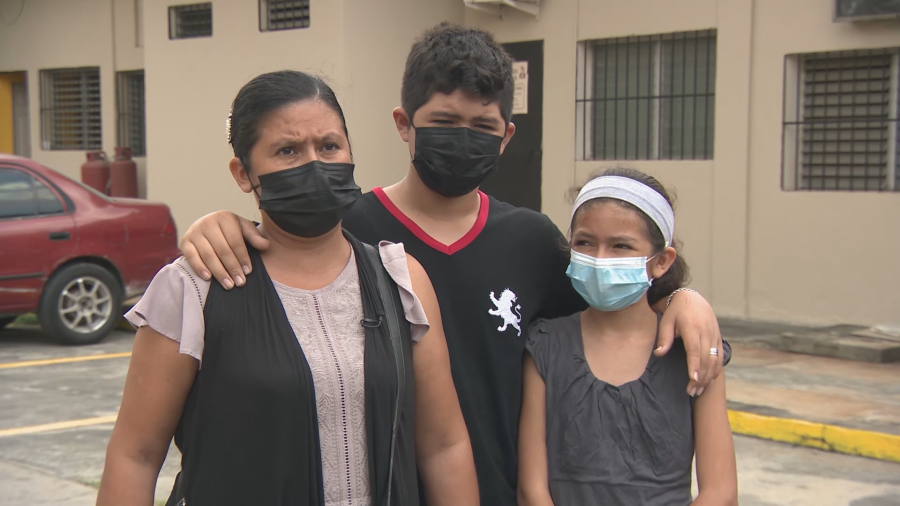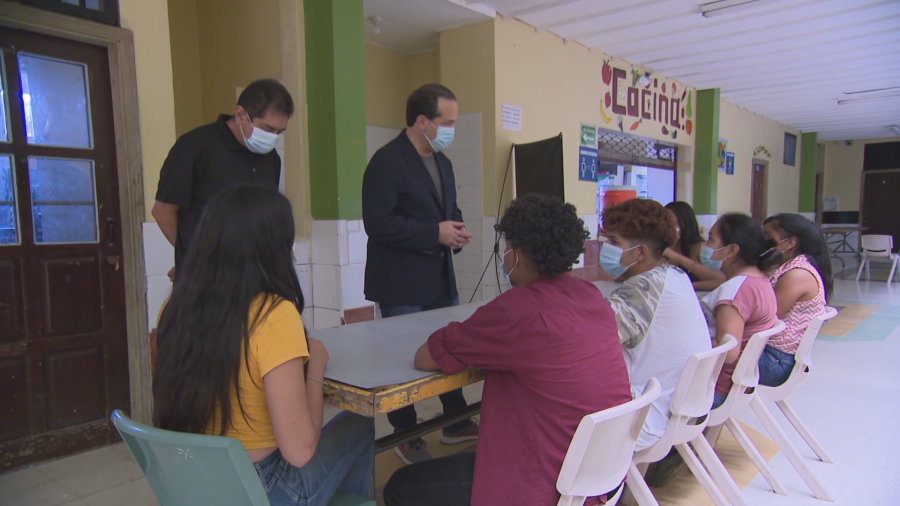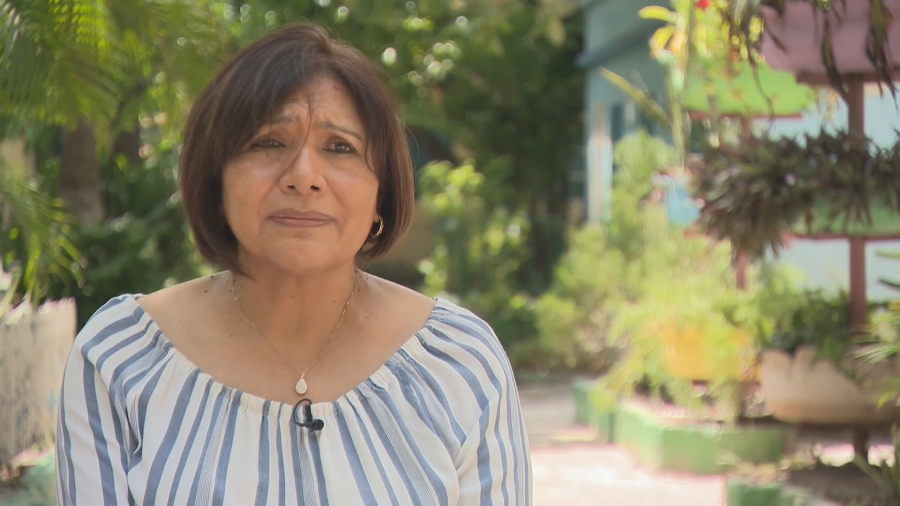Migrants in Central America look to the U.S. as they flee poverty, violence at home
GUATEMALA CITY, Guatemala (NewsNation Now) — The United States is the end point for most migrants coming out of Central America, but Guatemala is where that migration begins.
Hondurans come across the border, many of them come to Guatemala City as a waystation as a place to earn some more money before they make the journey further north. They then go on to Mexico, although some don’t even make it past that.

Among them was Olga, who returned to Honduras with her children three years after they fled gangs of San Pedro Sula, the most violent city in the country, after gangs threatened to burn her husband alive.
“My husband was under threat and we decided to leave. We had never before had dreams of migrating, but it happened,” she said through an interpreter.
Olga says they made it as far as Mexico, where they discovered her husband had cancer. After he died, they returned back where they started. Now they are once again struggling to survive, surrounded by the same violence and poverty they were trying to escape.
She said even a phone she scraped up enough money to buy is a lure for criminals.
“Not even a month after buying it, I got mugged on a bus,” she said. “It’s better to have only the necessary, anything more than that ends up being taken away from you.”
Honduras has the fifth highest rate of violence against women in the world and a murder rate 10 times that of the United States.

Fernando said he snuck past border patrols to leave Honduras and made it to Guatemala City so far, with the ultimate goal of getting to Florida.
“My country is in a sad situation, it’s pretty much closed,” he said. “I want to make it to Miami. I want to be reunited with my woman, work and help my dad who is back in Honduras,” he said through an interpreter.
But there are no guarantees. Each day many Central Americans are repatriated from Mexico and the United States. The return home often as treacherous as the journey out.

José Guadalupe Ruelas works as director of Casa Alianza in Tegucigalpa, where they work with some repatriated kids who face a wide range of problems.
“People think that when a girl emigrates, she was raped, she was abused, she was with many people so, when they return, they feel singled out,” Ruelas said.
Then there are those for whom migrating is so important that they leave children behind.

Claudia Castro heads up El Hogar in Tegucigalpa, where education and skills training are taught to kids.
“A lot of families, they are looking for a job, they are looking for a better opportunities, they are looking for a better life,” Castro said. “And actually, we have some families that left their children when they leave to Mexico.”
Back in San Pedro Sula, Olga’s family has stayed together through migration and return
“I think my mom and brother are really brave to have endured so much. It is a heavy burden they have to deal with. but we try to move forward one day at a time,” her son said.
In this era of constant migration, sometimes moving forward means being forced to stay in one place.










